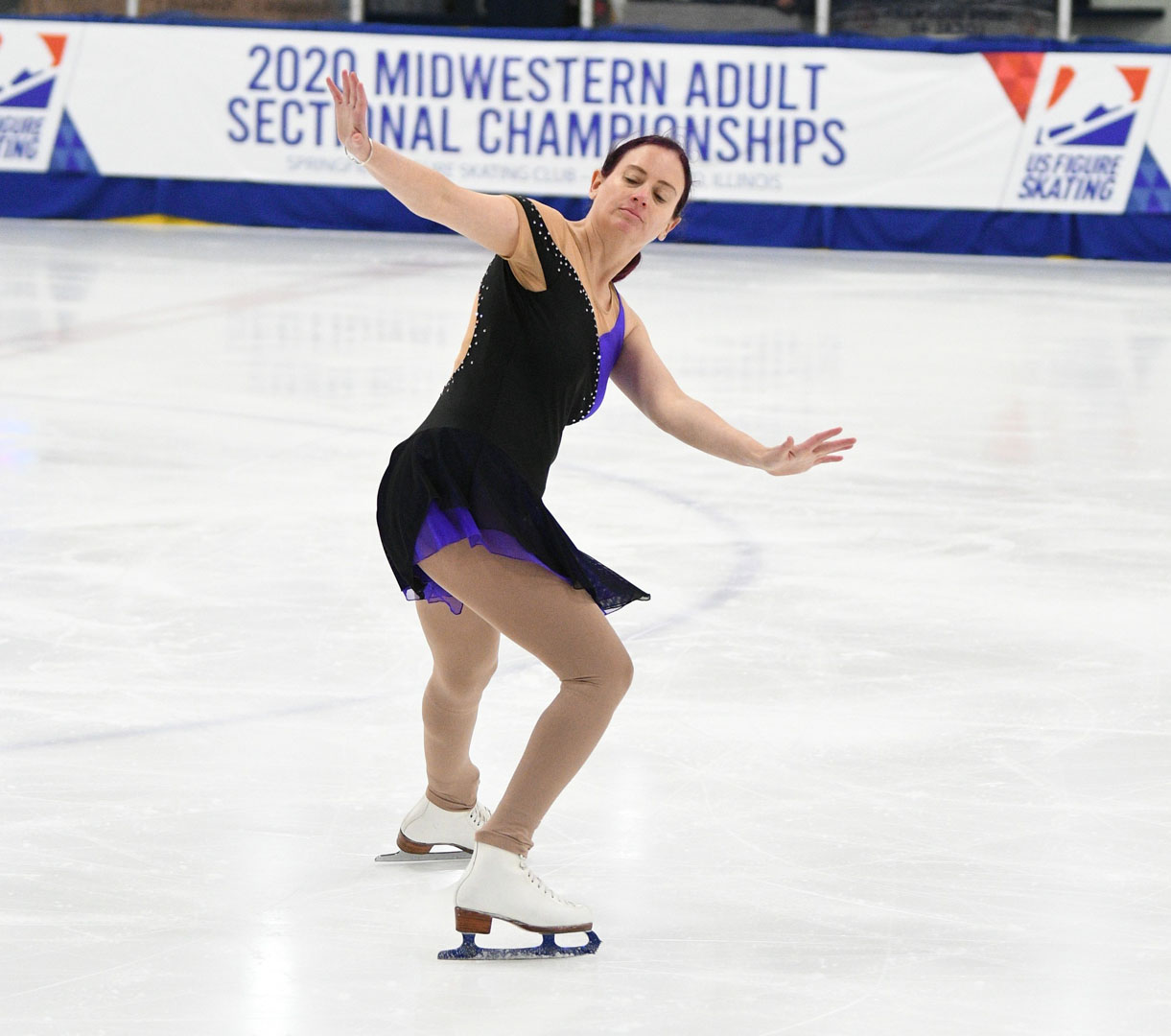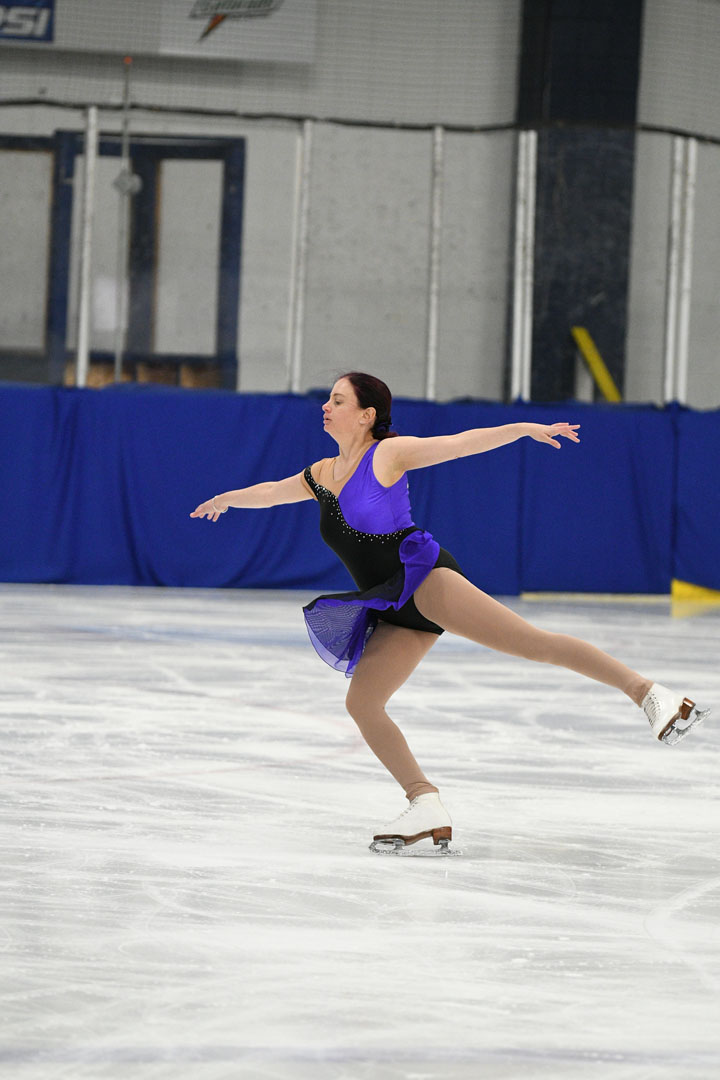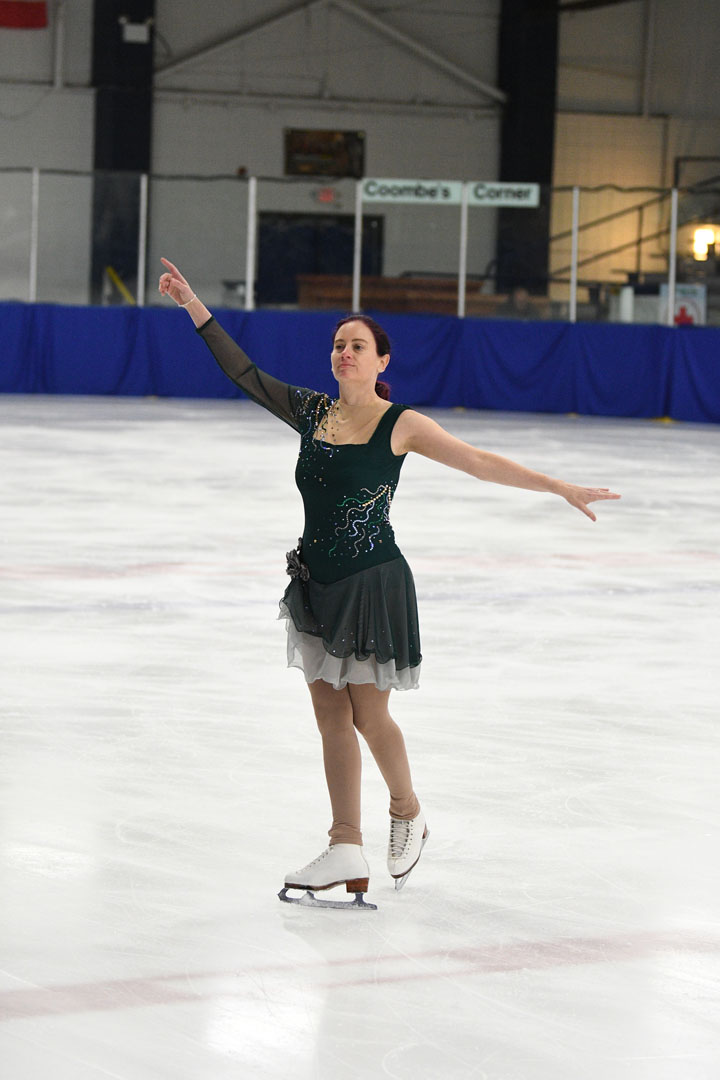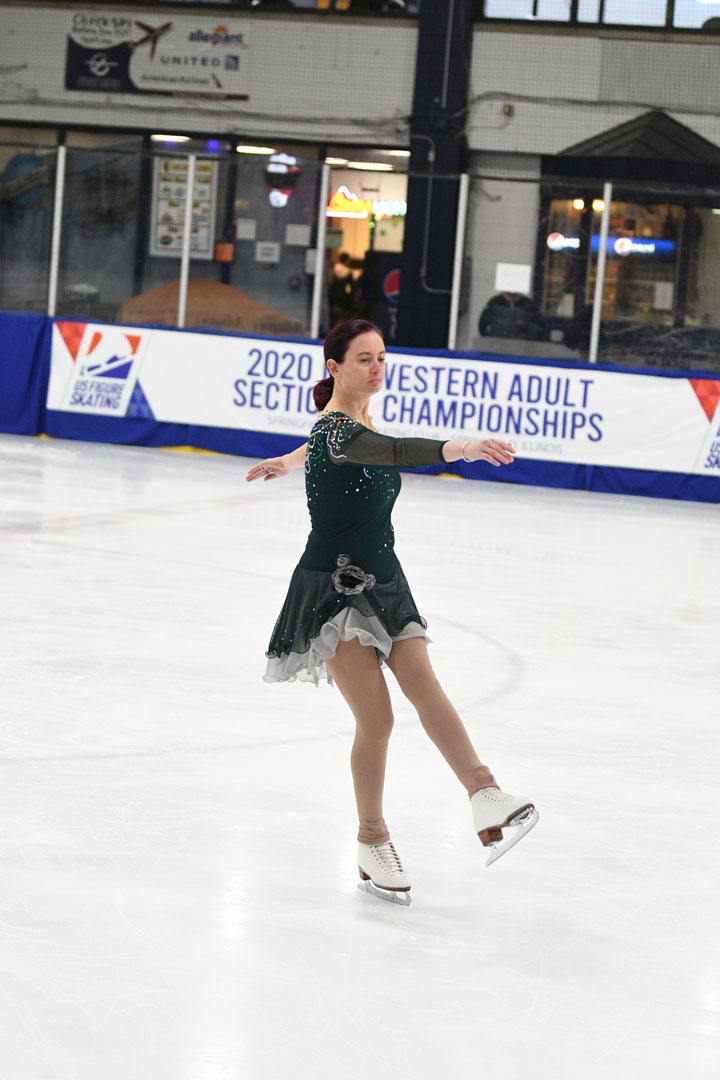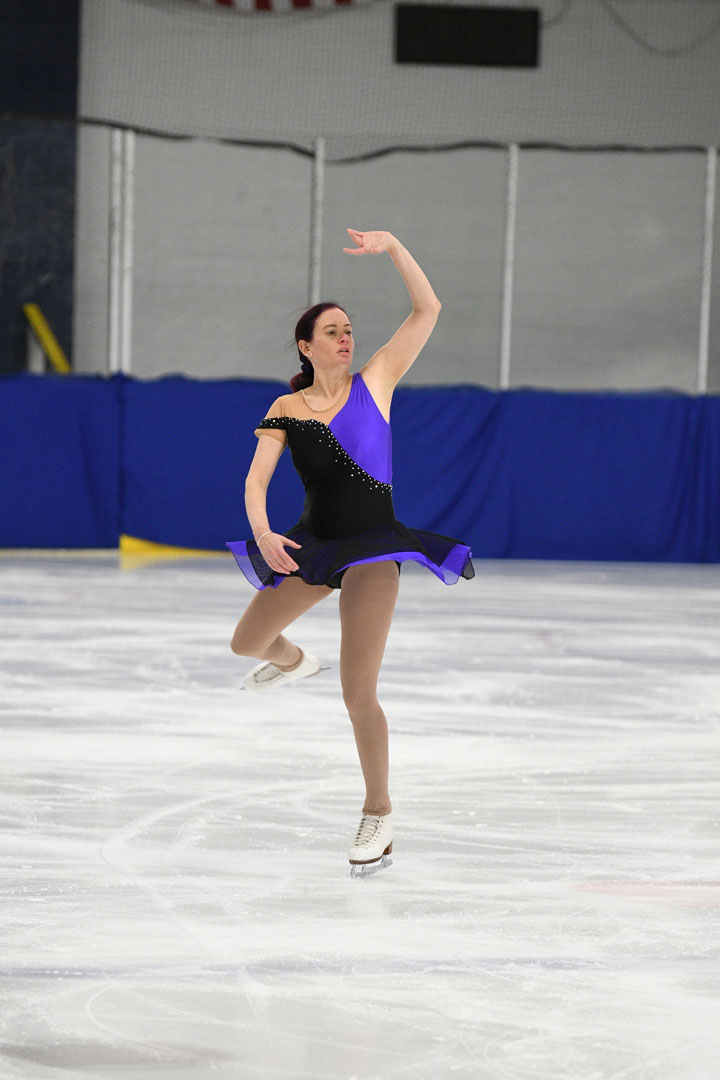Krista Fish ’97, associate professor and chair of the Anthropology Department, will compete at the 2023 U.S. Adult Figure Skating Championships in Utah this week.
While all members of the campus community appreciate how valuable free time is on the Block Plan, Fish has mastered the art of managing her time and uses the Block Plan to her advantage. Despite competing this week, Fish is successfully teaching a Block 7 class on primate behavior.
Fish does the bulk of her training during non-teaching blocks, when she skates four to five times a week for an hour, plus off ice workouts four days a week.
“I think that the focus I learned by being a student on the block and now teaching on the block help me maintain my focus during training — the focus that both skating and the Block Plan require seem to be interrelated and support each other,” says Fish.
Fish started to skate in high school and continued with it during her time as a student at CC, where she would skate at Honnen Ice Arena after class. Upon entering graduate school, Fish turned her focus to running, as skating was an expensive hobby for a graduate student. However, Fish found that her brain couldn’t totally disengage from work during these runs, and Fish started looking for another workout that would better help her maintain her work-life balance.
In 2016, Christina Rader, assistant professor of economics and business, suggested that she and Fish skate a lunchtime public session at Honnen, and the rest is history.
“Even though I didn't get my skating legs back during that session, I remembered everything that I loved about skating. I got a coach two weeks later and have been skating since then. Skating is such a better activity at this point for me because when you are skating, you have to be totally focused on what you are doing on the ice or you risk injuring yourself. Skating forces me to disconnect fully from everything else going on and that is exactly what I needed, and still need,” Fish says.
Fish will compete in two events: Adult Bronze Solo Pattern Dance and Adult Bronze Solo Free Dance. Competitors in the pattern dance event complete the same steps to music with the same tempo. Skaters are judged on the quality of their turns and their timing.
Skaters have more individuality in the free dance, as they pick their own music and perform individually choreographed programs, which include steps, spins, and edges. Competitors are judged on their skating skills, the quality of their turns and steps, and their choreography, musicality, and expression.
“Krista has been a big inspiration to me personally, and to my daughter who started taking ice skating lessons last year following Krista’s suggestion. Krista showed us that ice skating is something anyone can learn to do at any age and ice skating provides a fun, supportive community,” says Rachel Jabaily, associate professor of organismal biology and ecology and southwest studies.
Fish is also the faculty advisor for CC’s figure skating team, which trains at Ed Robson Arena. “I love that I have gotten to connect with the students who are a part of the CC skating team! It’s nice to be able to talk with students outside of the classroom or mentoring spaces where I normally engage with them,” she says.
Fish competes her pattern dances on April 12 and her free dance on April 13.

